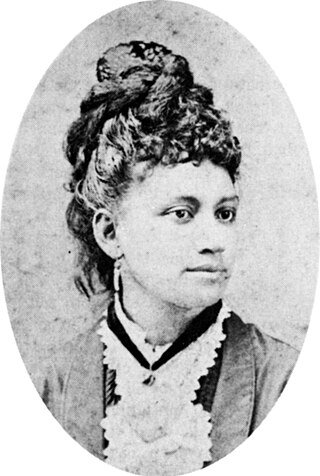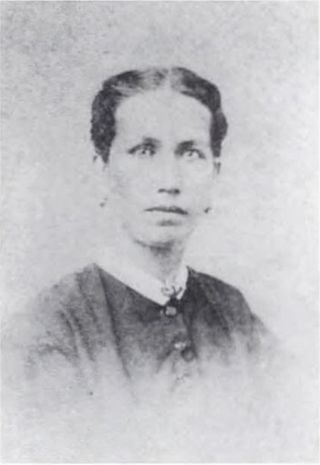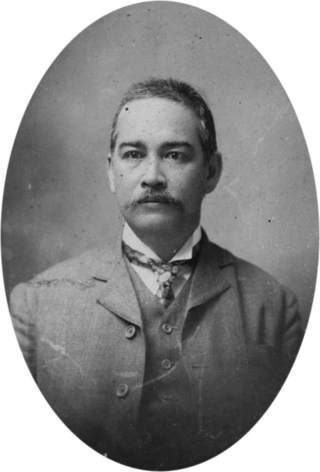
A personal name, full name or prosoponym is the set of names by which an individual person or animal is known, and that can be recited as a word-group, with the understanding that, taken together, they all relate to that one individual. In many cultures, the term is synonymous with the birth name or legal name of the individual. In linguistic classification, personal names are studied within a specific onomastic discipline, called anthroponymy. As of 2023, aside from humans, dolphins and elephants have been known to use personal names.
Guan may refer to any of at least four Chinese family names. The four names are as follows:

The carte de visite was a format of small photograph which was patented in Paris by photographer André Adolphe Eugène Disdéri in 1854, although first used by Louis Dodero.
Photography in China dates back to the mid-19th century with the arrival of European photographers in Macao. In the 1850s, western photographers set up studios in the coastal port cities, but soon their Chinese assistants and local competition spread to all regions.
Lai is a common Chinese surname that is pronounced similarly in both Mandarin and Hakka dialects. The meaning of the character used in the Lai (賴) surname is "depend on; trust in; rely on". Conversely the words, 無賴 literally translated to "without Lai" which means "undependable, rascal or scoundrel".
Pei is an East Asian surname originating in north China. In 2008, it was the 156th most common surname in mainland China, with at least 830,000 Chinese sharing this name.

Elizabeth Sumner Chapman Achuck Lapana Keawepoʻoole was a Hawaiian high chiefess during the Hawaiian Kingdom and lady-in-waiting of Princess Likelike. An accomplished Hawaiian composer, she composed the popular Hawaiian love song Sanoe with Queen Liliʻuokalani, which was about a love affair in the Hawaiian royal court in the 1870s.

Afong Moy was the first known female Chinese immigrant to the United States. In 1834, Moy was brought from her hometown of Guangzhou to New York City by traders Nathaniel and Frederick Carne, and exhibited as "The Chinese Lady". Announcements of her exhibitions advertised her clothing, her language, and her four-inch "little feet", a result of foot binding.

Lai Afong was a Chinese photographer who established Afong Studio, considered to be the most successful photographic studio in the late Qing dynasty. He is widely acknowledged as the most significant Chinese photographer of the nineteenth century.
Events from the year 1890 in China.
Tong Kee, also known as T. Aki, was a Chinese immigrant and businessman who settled in the Kingdom of Hawaii. In 1886–87, he was embroiled in the Aki opium scandal,, a bribery corruption scandal involving King Kalākaua and Junius Kaʻae reneging on a bribe Aki made to secure the sale of an opium license.

Chun Afong was a Chinese businessman and philanthropist who settled in the Hawaiian Kingdom during the 19th century and built a business empire in Hawaii, Macau and Hong Kong. He immigrated to Hawaii from Guangdong in 1849 and adopted the surname Afong after the diminutive form of his Cantonese given name, Ah Fong.
Chen Fang is the name of:
Ah Fong Village, Hawaii is a census-designated place (CDP) in Maui County, Hawaiʻi, United States. As of 2010, the population is 16.

Julia Hope Kamakia Paaikamokalani o Kinau Beckley Fayerweather Afong was a Hawaiian high chiefess who married Chinese millionaire merchant Chun Afong with whom she had sixteen children. She was of British, American and Hawaiian descent.

Chun Chik-yu ; June 12, 1859 – October 18, 1936) was a Chinese-Hawaiian businessman who served briefly as Governor of Guangdong Province from 1922 to 1923. He was born Toney Afong, full name Antone Abram Kekapala Keawemauhili Afong.

Chun Lung was a Chinese businessman in the Hawaiian Kingdom. He sometimes used his father's Hawaiianized surname and was known as C. L. Afong. He was also known as Alung or Ah Lung using the common Cantonese diminutive prefix Ah before his given name.
Shu is a Chinese surname. It is 43rd in the Hundred Family Surnames, contained in the verse 熊紀舒屈. Šumuru sinicized their clan name to the Chinese surnames Shu (舒), Xu (徐) or Xiao (蕭) after the demise of the Qing dynasty.
Hè ), also romanized as Ho, is a Chinese surname that is 71st in the list of the top 100 most common Chinese family names. The Chinese character 贺 / 賀 means "celebrate" or "congratulate." According to a 2013 study, He was the 86th most common surname, shared by 2,740,000 people or 0.210% of the population, with the province with the most people being Hunan. It is the 70th name on the Hundred Family Surnames poem.








